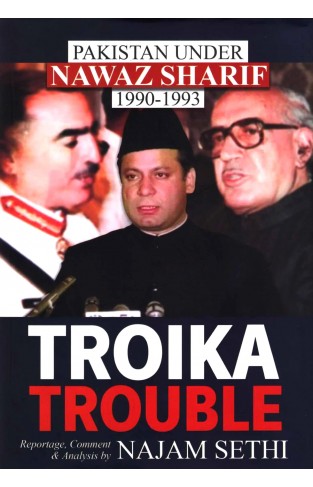PAKISTAN UNDER NAWAZ SHARIF 1990-1993
PAKISTAN UNDER NAWAZ SHARIF 1990-1993
By:
-
Rs 2,495.00
- Ex Tax :Rs 2,495.00
- Price in loyalty points :1996
Due to constant currency fluctuation, prices are subject to change with or without notice.
This is the second volume of a series of books by veteran journalist Najam Sethi on Pakistan’s sputtering journey under democracy from 1988 to 2021 after it emerged from a stifling decade of autocracy under Z A Bhutto from 1972-1977 and ruthless dictatorship under General Zia ul Haq from 1977 to 1988.
In this collection of nearly 200 articles, reports, commentaries and analyses, Sethi discusses a wide range of issues relating to state, society and government under the Nawaz Sharif regime from 1990 to 1993. Among the many subjects covered are: mockery of justice and judiciary under pressure; the “law of necessity”; state terrorism; humour in uniform; thinking beyond Saddam; privatise or perish; cold war blues; Nawaz Sharif’s options; freedom, fairness, state and party; disintegration of the social contract; the rise of Nawaz Sharif; India’s dangerous legacies; waylaying the press; the price of press freedom and accountability; the “great game” revisited; how the other half dies; US-Pak agenda for nuclear talks; art of stealing elections; dialoguing with India; unravelling Afghanistan; grasping cynics and power plays in Islamabad; Benazir Bhutto’s social contract; “cleaning-up the fanatics”; killing fields of fundamentalism; how and why to get rid of the 8th Amendment; third force vs third solution; the tragedy of General Asif Nawaz; Establishment vs Civil Society; Discretion vs Justice; Nawaz Sharif’s Lafafah legacies; and grand delusions of Mairaj Mohammad Khan and Rao Rashid.
The writing is full of sardonic humour, wit and penetrating analysis.



